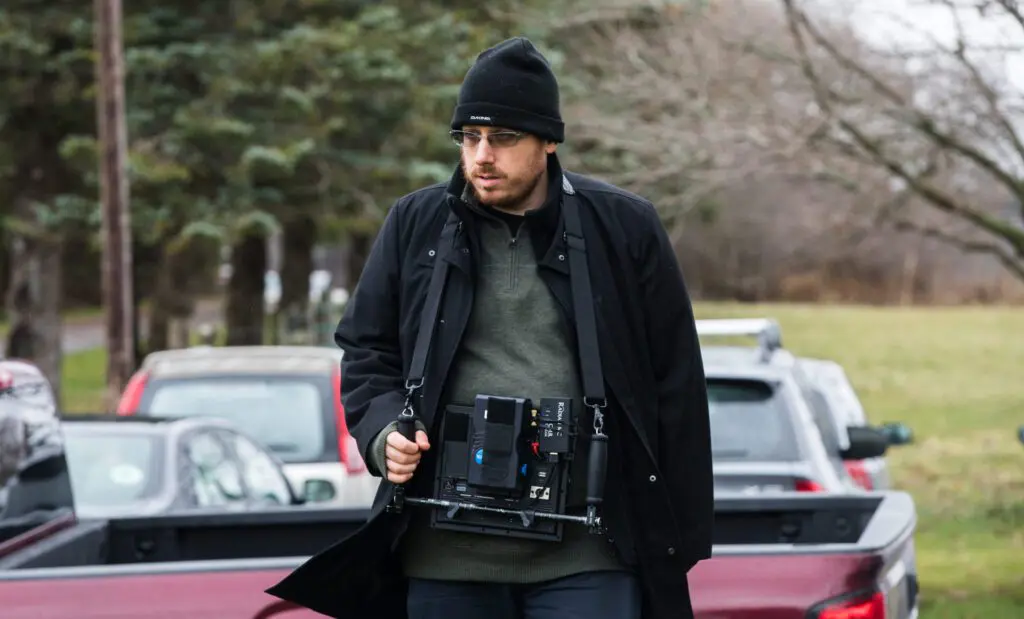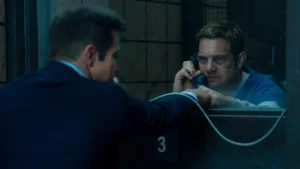Summary
Fascinating documentary about and demonstrating the journey from film idea to production, from the point of view of such an independent filmmaker, and including advice and insight from countless others.
Justin McConnell is a modest, often self-deprecating, indie filmmaker from Canada. He has experience, but has spells of despair about how to progress in his career and in the film industry. But passion and determination prevail: several years ago he turned his attention to other independent filmmakers who had already succeeded to find out how. Clapboard Jungle: Surviving the Independent Film Business documents that journey, and it is eye-opening.
Well over half of the film is made up of clips of interviews with established names in film, people who have already been through what McConnell has been facing. Dozens of actors, directors, and producers have contributed their experience and insights, making the documentary both rich and dense; familiar faces such as Guillermo del Toro, Lloyd Kaufman, Sid Haig, John McNaughton, Richard Stanley, and Heather Buckley. Clapboard Jungle is loaded with cinematic authority.
In parallel with the interviews, we follow McConnell in his attempts to get support for first one, then another feature film. He talks us through the various parties involved, how funding is needed before a distributor can be found, etc. and the headaches that accompany such bureaucracies. We follow him to film markets and festivals, listening to his reactions to phone calls and his “diary room”-style soul-baring. This isn’t to say that Clapboard Jungle is strictly about Justin McConnell’s experiences, but they were the catalyst for the film, and essentially provide a five-year career case study.
Overall, Clapboard Jungle is a very nicely put together documentary. We can see how various pieces of advice that McConnell acquires take him from one step to the next, but the film is definitely more self-help than self-indulgent. It definitely comes across as though he is the sort of person who wants to find out how to produce his best work, and share what he learns with his fellow indie film directors. Consequently, there is an accompanying website to this documentary that provides links to all the film markets, papers, and festivals he mentions in the film, along with other resources.

The style of Clapboard Jungle is not a fun, optimistic ride, with a sense of victory when the advice pays off. Rather, McConnell is careful to present life as a filmmaker as a vocation, a hard slog. The tone is almost academic (true contrast with the other FrightFest documentary title I’ve covered recently), with unfussy captions crediting each of the interviewees as we first see them, and just enough music in between scenes to prevent the film from feeling cold. To some degree this is also a disadvantage, though: there is very little variation in emotional tone to the documentary as a whole, which gives it a slight monotone feel.
Nevertheless, I have no hesitation in recommending Clapboard Jungle: Surviving the Independent Film Business. Budding filmmakers would have an excellent primer in what lies in front of them; film studies students and critics like myself can gain insight into the sheer effort behind every aspect of the endeavor. The website is also bound to be an excellent reference source, similar to Adrian Tofei’s lists of film festivals and submission tips.
Personally, I found the outcome of McConnell’s journey in Clapboard Jungle especially pleasing. He obtains funding and puts together a solid team for his film Lifechanger, and Clapboard Jungle concludes with Lifechanger starting production, and McConnell reservedly giddy at arriving at this point. Lifechanger was one of the films which impressed me most a couple of years ago, and it is fascinating to see now, in retrospect, all the effort and heartache involved in its birth.




